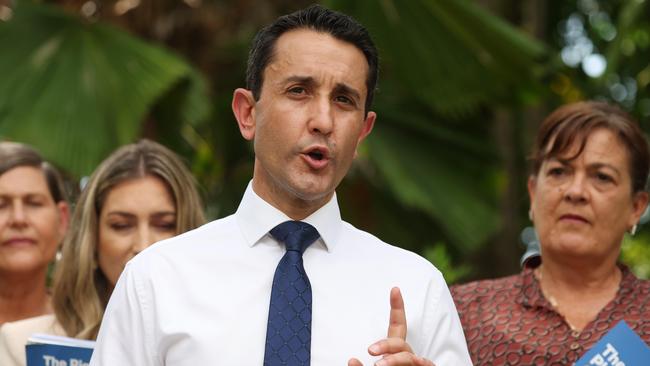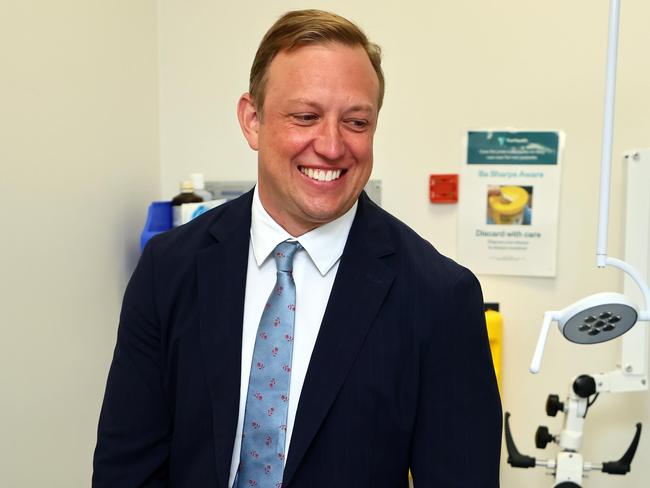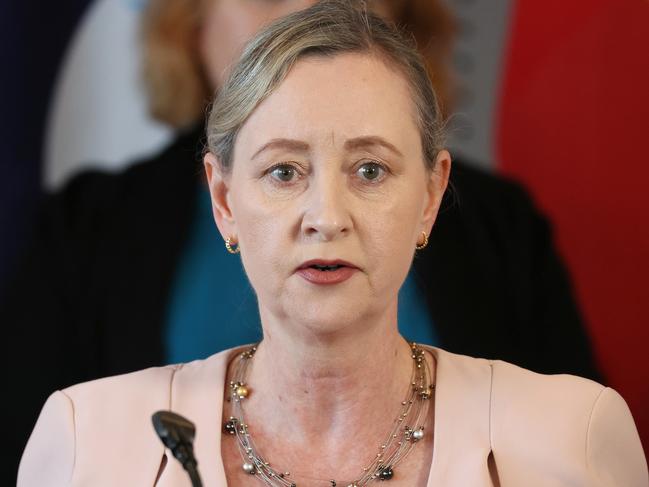Opinion: David Crisafulli’s crime pledge extraordinary and dangerous
By staking his job as premier on a decrease in victims of crime, David Crisafulli failed to consider one factor, writes Terry Goldsworthy.

QLD Votes
Don't miss out on the headlines from QLD Votes. Followed categories will be added to My News.
The state election is 10 days away. Recent poll data on voting intentions shows that crime and social order is the third most important voter priority behind the cost of living and housing.
It also shows that of those surveyed, only 22 per cent thought that Labor was best placed to handle the issue, with the LNP sitting on 49 per cent.
Labor has been in power since 2015 and has little to show for it in terms of positive outcomes in the area of law and order.
The crime rate in Queensland in 2023 was the highest it has been for 20 years.
The latest available data shows that crime across the state rose by 0.1 per cent in the past 12 months.
As newly appointed police commissioner Steve Gollschewski said recently, “whilst you might think ‘Oh, that’s good, it’s stabilised’, it’s not good. I’m not satisfied at all, because we’re on a really high level.”
The seeds for the current crime crisis were sown by the Labor government in 2016 when it removed breach of bail as an offence for youth offenders and also reintroduced into the Youth Justice Act the principle of detention as a last resort.
Little wonder that Queensland is in the grip of a youth crime crisis of its own making. In the latest Queensland Crime Report, youth offenders accounted for more than 50 per cent of robberies, break and enters and stolen vehicles.
In 2023, Labor scrambled to reintroduce breach of bail for youth offenders. Since then, the true extent of the problem has been revealed.

In the 12 months up to May this year, 1144 young people were charged with 8464 breach-of-bail offences.
No wonder youth offenders operated with impunity.
Yet, in a move that defies logic, the current government decriminalised hardcore drugs such as heroin, cocaine and methamphetamine.
This is despite government data showing that 81 per cent of youth offenders have used an illicit substance, and some 38 per cent have used methamphetamine.
The 2023 Queensland Labor platform states that it will increase the age of criminal responsibility from 10 to 14.
But what does the LNP offer? In the recent leaders’ debate, LNP leader David Crisafulli pledged to resign if the number of crime victims did not fall during his first four-year term.
He further stated: “I’m serious about it, and I’m not giving myself any wriggle room. It’s victim numbers.”
Such a promise is extraordinary and dangerous.
The best gauge of crime trends are rates, not numbers. Rates are independent of issues such as population increases. In Queensland, the population increased by 138,472 in 2022-23. Put simply, the increase in population could in itself drive victim numbers up, even as the rate declines, and force Crisafulli to resign. It was an ill-thought pledge.
The LNP has brought forward the issue of reset camps, which have been largely dismissed as being a replication of the Newman-era boot camps.

The research evidence tells us that boot camps are ineffective in stopping recidivism.
But these camps are a different concept to boot camps, which are court-ordered alternatives to incarceration. These camps would be voluntary and before a problem youth enters the criminal justice system, with the focus on education, discipline, counselling, training and employment.
These are relevant given that 48 per cent of youth offenders are disengaged from education, training and employment. They might just work.
The other big LNP policy is adult crime and adult time.
From 2005-16, 10 youth offenders were convicted of murder in Queensland. Only six got life sentences, with the rest receiving terms from eight to 14 years.
The LNP policy will mean life for youth offenders who commit murder. It will make little difference to other offences as only about 6 per cent of youth offenders in Queensland receive custodial sentences and hardly any receive the maximum sentence.
To make any change in terms of sentencing outcomes, any incoming government would need to consider imposing a minimum mandatory sentencing regime.
The LNP has said that this will be on the table if it is elected. Retiring Labor Attorney-General Yvette D’Ath has ruled out mandatory minimum sentencing.
The stakes are high, and the choices are clear.
In a few weeks, Queenslanders will make their decision clear on the state of law and order in Queensland.
Terry Goldsworthy is an associate professor of criminology at Bond University
Originally published as Opinion: David Crisafulli’s crime pledge extraordinary and dangerous


